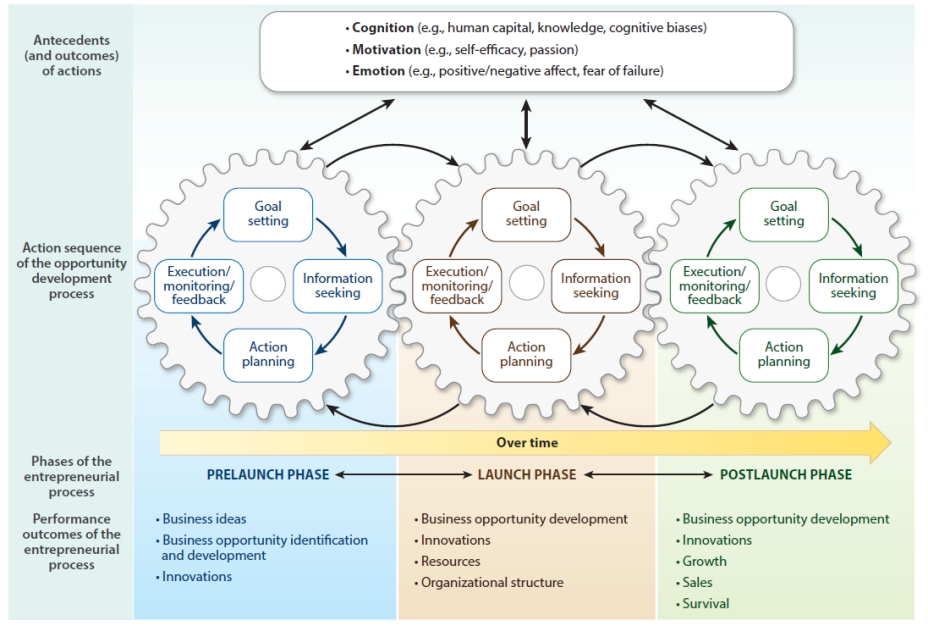Lesson 3 Action Theory Process Model of Entrepreneurship
1/10
Earn XP
Description and Tags
made with AI
Name | Mastery | Learn | Test | Matching | Spaced |
|---|
No study sessions yet.
11 Terms
What are the core action components in each phase(Prelaunch Phase,Launch Phase, Postlaunch Phase)?
Goal setting
Information seeking
Action planning
Execution/monitoring/feedback
What is the main role of “Goal Setting” in the model?
To define clear objectives and direction for action at each phase of the process.
Why is “Information Seeking” important in entrepreneurship?
It helps reduce uncertainty by acquiring relevant knowledge and data to make informed decisions.
What does “Action Planning” involve?
Breaking goals into actionable steps and organizing tasks and timelines accordingly.
What does “Execution/Monitoring/Feedback” include?
Carrying out planned actions, observing results, and adjusting based on feedback to improve performance.
What are the main antecedents of entrepreneurial actions?
Cognition: Human capital, knowledge, cognitive biases
Motivation: Self-efficacy, passion
Emotion: Positive/negative affect, fear of failure
What are performance outcomes in the Prelaunch Phase?
Business ideas
Business opportunity identification
Early innovations
What are performance outcomes in the Launch Phase?
Opportunity development
Innovation
Securing resources
Organizational structure
What are performance outcomes in the Postlaunch Phase?
Growth
Sales
Survival
Continued innovation
How do the gears (action sequences) operate across phases?
They represent a continuous, cyclical process where each action feeds into and influences the next phase over time.

Why are cognition, motivation, and emotion shown as influencing all phases?
They shape how goals are formed, how persistent and adaptive actions are, and how setbacks or opportunities are perceived.